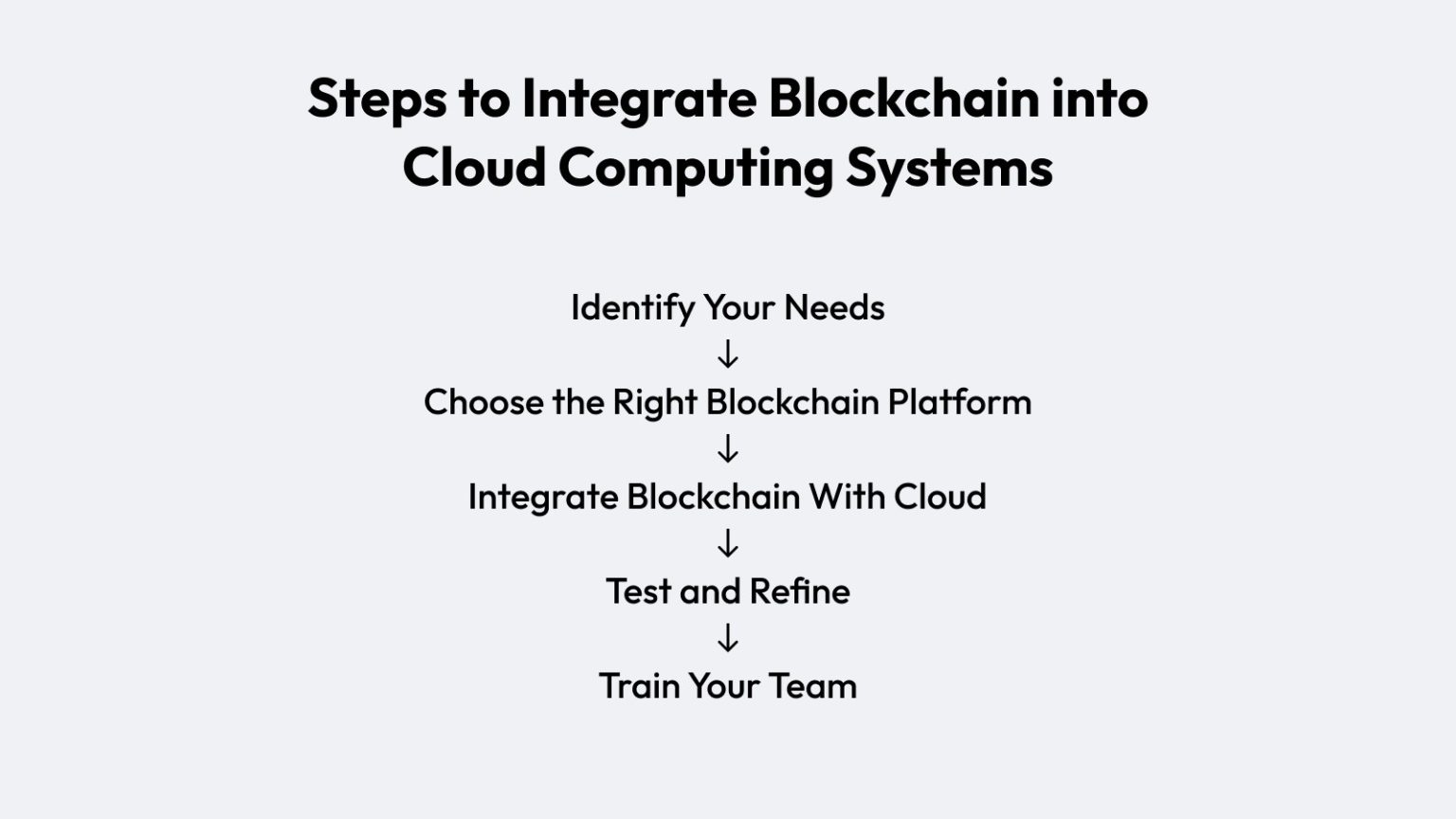Blockchain and cloud computing are revolutionizing the manner in which businesses handle and protect data across the globe. Together, these emerging technologies provide great benefits to businesses, from increased security to enhanced operational efficiency. Have you ever wondered how blockchain can bring new value to cloud computing? This article will brief you on basic concepts leveraged by this powerful combination, the advantages it guarantees, and what it means in everyday life.
Blockchain Technology’s Role in Cloud Computing
Cloud computing has revolutionized how businesses operate and handle data, as nowadays, it is quite simple to shrink or increase storage amounts without the headache of physical servers. However, several vulnerabilities, hackers, security breaches, and centralized control still raise significant risks.
Now comes blockchain—a game-changing solution that decentralizes cloud storage. Unlike traditional methods of keeping data in one place, blockchain spreads it out over a network of nodes; this creates a rather tamper-proof environment. Changing anything requires recording modifications and, thus, verification through the network, maintaining total transparency and integrity.
In the default cloud configuration, a hacker might compromise a server and alter important records fairly easily. But in a blockchain-secured cloud, any unauthorized changes that take place fire an alert reaction on a network-wide scope, significantly enhancing its security.
Also, blockchain brings smart contracts—self-executing contracts where entries are made automatically when preset rules are satisfied. Imagine your cloud service approving payments upon acknowledgment of work done without needing a go-between authority.
Steps to Integrate Blockchain into Cloud Computing Systems
So, how does a company start incorporating blockchain into its cloud? Easier than one might imagine, but it requires some forethought. Here are a few of the key steps:
Identify your needs
Before jumping aboard, it is always good to figure out exactly what you need because it will determine where blockchain can bring added value and blockchain app development cost. For instance, speaking from a general point of view, if it’s in the health business, then it could be applied right where it is necessary: securing patient data in a way that would be tamper-proof. You may track goods in real-time and verify authenticity with the use of blockchain in supply chain management.
Choose the right blockchain platform
Not all blockchains are born equal, and some, like Ethereum, are perfect for executing smart contracts. In contrast, others, like Hyperledger, have been designed to suit industries that require more privacy and control. Selecting the right platform based on your specific use case is relevant. For example, IBM’s Blockchain platform is built on Hyperledger and offers flexible options for businesses needing scalability and security.
Integrate blockchain with cloud
You are going to have to integrate blockchain with your existing cloud infrastructure. Let’s say you were using Microsoft Azure; this step is easier to take by using the Azure Blockchain Workbench set of pre-built templates that link blockchain with your cloud services. That means less heavy lifting on your end.
Test and refine
But, like any other technology, blockchain is only as powerful as it has been tested. A small pilot scheme can easily weed out problems to be fixed or performance optimizations before scaling up. For instance, Amazon Managed Blockchain allows the setting up of a small network to test the waters before fully committing.
Train your team
With blockchain still a relatively new technology, it’s important that your team actually comprehends how everything fits into place. This includes training technical staff on how to manage blockchain operations and staff on how workflows will change because of it.
Key Players Adopting Blockchain for Cloud Computing
Some of the world’s leading companies are already busy using blockchain to improve their cloud services. Who leads the charge?
IBM
IBM has been creating quite a stir of late with its IBM Blockchain Platform. One of the most outstanding examples is IBM’s use of blockchain in food supply chains. Organizations are now using it to trace the origin of food products to reduce the risk of contamination and fraud. One of the most considerable contributors in this respect is Walmart.
Oracle blockchain cloud
Not to be outdone, Oracle has also jumped into the blockchain fray, offering blockchains that enable a wide range of business transaction tracking, identity verification, and paperless document management. China Distance Education Holdings utilizes Oracle’s blockchain technology to authenticate student credentials and course completions.
Amazon Web Services (AWS)
AWS facilitates this through Amazon Managed Blockchain, which easily allows users to create their blockchain networks in just a few clicks. One such example of using blockchain as part of its supply chain tracking is Nestlé.
Wrapping Up
The blockchain and cloud computing meeting produces transformative dividends in terms of security, transparency, and automation. The decentralized approach with blockchain reinforces systems built on the cloud by enhancing their data protection capability and enabling frictionless transactions.
With giants like IBM, Oracle, and AWS embracing blockchain just like they did with earlier technologies, innovative applications are sure to disrupt industries ranging from supply chain to healthcare. This is really a very good time to integrate blockchain into your cloud strategy and take your business to the next level.
